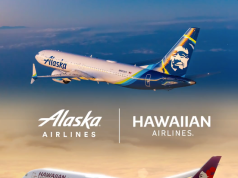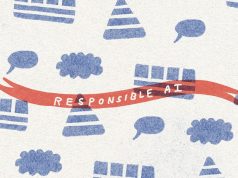 Webster’s Electronic Dictionary defines the word “melody” as a “progression of agreeable musical notes.” Tune into this musical succession in Seattle and you can’t help but note the accompanying audio innovation that resonates around you. With a chorus of arrangers like Microsoft’s MSN Music Service, RealNetwork’s Rhapsody, Loudeye’s Digital Music Store, on down to distribution models like Weedshare and CommonMedia, the sonic boom in digital audio distribution and authentication (via DRM technology) began emanating right here in the Sound of Puget.
Webster’s Electronic Dictionary defines the word “melody” as a “progression of agreeable musical notes.” Tune into this musical succession in Seattle and you can’t help but note the accompanying audio innovation that resonates around you. With a chorus of arrangers like Microsoft’s MSN Music Service, RealNetwork’s Rhapsody, Loudeye’s Digital Music Store, on down to distribution models like Weedshare and CommonMedia, the sonic boom in digital audio distribution and authentication (via DRM technology) began emanating right here in the Sound of Puget.
Now it’s time to tune in again. In today’s perpetually mobile world of 2005, digital audio is once again reverberating around another melodious milestone. This time, the “content” is the syndicated audio program, or “Podcast,” and the delivery vehicle of choice is Mobilcast from a company called Melodeo.
Composing new communication standards is nothing new to the two year old Seattle start-up whose virtuoso team has orchestrated some of the most successful mobile phone technology to date, starting with early work on the AOL and ICQ instant messaging software for mobile phones and, before that, T9 text-entry software.
 The Melodeo Mobile Music Solution offers wireless carriers a turnkey system for distributing content wirelessly and empowers users to download everything from podcasts to full-length music tracks to their mobile phones over a wireless network. The company is already serving up music direct- and over the air in Canada through the Rogers MusicStore and in Spain via Telefónica Móviles España.
The Melodeo Mobile Music Solution offers wireless carriers a turnkey system for distributing content wirelessly and empowers users to download everything from podcasts to full-length music tracks to their mobile phones over a wireless network. The company is already serving up music direct- and over the air in Canada through the Rogers MusicStore and in Spain via Telefónica Móviles España.
Last week, the company unveiled its latest breakthrough in mobile audio – the ability for consumers to download podcasts over-the-air and into their mobile phones. The Mobilcast application is currently designed to run on Symbian phones like Nokia 6600 series and N-gage, but the Java version will be ready in a few weeks time. The software is a free download at www.melodeo.com/Mobilcast.
In creating a global wireless network for podcasts, Melodeo is also rolling out the Mobilcast Affiliate program. Mobilcast Affiliates can contribute podcasts for wireless download and help get Mobilcast into the hands of consumers. By participating in this distribution, Mobilcast Affiliates truly represent the community nature of Podcasting,
Seattle24x7 caught up with Melodeo marketing maestro, Stan Sorensen, for our own wireless download on the birth of the mobile podcasting revolution right here in E-City.
Seattle24x7: Melodeo’s introduction of the Mobilcast solution for podcasters is a groundbreaking development. Where do you see it in terms of digital audio’s evolution online?
Sorensen: The popularity of podcasts right now reminds me very much of the early days of the Internet. You may remember that groundswell period when anybody who was anybody had a web site. People put up sites left and right and gave stuff away. It was all about free. Well, podcasts work very much the same way. Anybody can create a podcast. I think there’s something like 400,000 podcasts out there. Everything from NPR and ESPN to tens of thousands of special interest podcasts. We’re proud to help play a formative role.
Seattle24x7: You’ve launched with the Symbian version of Mobilcast to be followed by the Java side. Will those two platforms represent a critical mass in terms of your potential user base?
Sorensen: The Symbian phones represent only a single-digit percentage of what’s in the market today. With Java, we will be able to reach close to 50% of the market, if not the major share. Our product roadmap also includes a Brew implementation although an exact time for when we actually do that has not yet been determined.
Seattle24x7: While Melodeo is just launching the Podcast version of Mobilcast in America, you’ve been distributing music tracks in wireless mobile outside of the U.S.?
Sorensen: Yes, we’ve been doing music over the air for eight months now. You can plug into the Telefónica Móviles España service, which is the biggest mobile carrier in Spain today with around 20 million subscribers. On their music service, you can preview and download music over-the-air via Melodeo technology. And in Canada, Rogers Wireless reaches 5 million or so subscribers with a service called the Rogers MusicStore. It lets you do the same thing, namely purchase and download music to your mobile phone. That’s also powered by Melodeo technology. We have the capability of distributing any type of digital content over the air but today it is primarily audio.
I used to marvel at how my mobile phone would work so beautifully in a European country compared to here at home. I mean, I used to get phone calls in the tube in London, but I’d drop a call coming across the 520 bridge from Redmond to Seattle. It’s attributable to the level of technical and network maturity in Europe. We’ve got a really mature market over there for this set of services. Every major European carrier is looking at rolling out music within the next 12 months. And there’s a huge amount of interest in Asia.
Seattle24x7: What is the major obstacle or barrier to delivering digital music domestically in the U.S.?
Sorensen: Today no US carrier is offering the service, but we think that’s going to change by the end of the year. There are a couple of things that have slowed the process down, First off, the ideal network for downloading digital content of this size is a 3G network. The US hasn’t rolled out 3G networks broadly with any carrier. That’s finally starting to change, and you’ve got people who are introducing 3G. For example, Cingular’s got some 3G implementation today, certainly Sprint, and now Verizon is beginning to roll out EVDO networks. Those are much faster and much more optimized to large data objects like music or a large Podcast.
Secondly, there is also a lag in handsets. Music capable handsets are just starting to appear in the US and as of the last 12 months. In Europe, they have had them for a couple of years now.
The third factor is that, quite frankly, it’s hard to get record labels to give blanket permission for mobile downloads. We’ve been able to get that permission in Europe, In the states, it’s a very different market. In fact, in the states, the online world has established a certain expectation for the user as well as the record label around deals.
If I go to iTunes or to Napster, or to Real, I’m paying $.99 a track. To be brutally honest, there’s really no money to be made for anybody at $.99 a track. It’s well known that Apple doesn’t make money on iTunes downloads, Apple makes money selling iPod’s. At the same time, the labels don’t make a whole lot of money, or as much as they’d like to be making, on a $.99 downloaded track. So, with mobile, what you see is the labels wanting to increase their base rate. There’s been this artificial ceiling at $.99, and it might be hard to really push people past that. However, there’s mounting evidence that people will pay more, even $2-$3 per track. Eventually, I think that price will become an objection that’s possible to work around.
Seattle24x7: How do you respond to the competitive pressure of the Apple iTunes announcement to offer downloadable content via iTunes on the new Motorola ROKR phone?
Sorensen: We’ve known about this for at least six months. We’ve seen mockups of the iTunes phone, noted when the FCC approved it, and we’ve had sources inside of Cingular confirm that Cingular is going to offer it. None of this is a surprise. What it does, ultimately, is validate that the mobile phone is a good music platform and a good music device, which is nice. The main thing that it really does though, is that it opens up the market for alternatives such as Melodeo to the iTunes phone.
Seattle24x7: What are the pros and cons of the iPod phone?
Sorensen: The iTunes phone is an interesting device. It’s an iPod. It’s a telephone. It will do a reasonably good job at both. However, some pretty serious limitations exist that are more than likely going to surprise people, especially hard-core mobile users. You can’t download music over the air. You can’t share music between devices.
Initially, I think you’re going to get a “wow factor.” Wow, that’s really really cool. But for $200, will I want to pay for a phone with those kind of limitations? With Melodeo software on your phone you can get over the air full track downloads, store more music (based on your phone’s capability) and also share music. In overview, it’s such a huge market opportunity that we are realizing the whole category is good for all.
Seattle24x7: Do you have any other licensing relationships like with the Rhapsody service or with Microsoft or the music store space? And which audience segments do you consider to be your prime markets?
Sorensen: We have had a number of conversations with the online providers. In fact, the four major music labels have already approved our DRM for mobile music. As far as which segments of the market can take advantage of what Melodeo has to offer, it depends on the content that’s being offered. For the music service itself, were seeing a younger demographic. Age 17 to 30 is really the demographic that is most attuned to using the phone as more than just a voice device.
When you start moving into podcasts, the demographics shift up. What you find are folks who are older than the 17-30 bracket, but who are still cutting edge technically and are very interested in a lot of the content that is now available from podcasts.
Seattle24x7: Is there a search component in your interface for finding music?
Sorensen: We actually have two ways that we manage catalogs. Through our technology, we grab the metadata from the songs, and we’ve compiled that data into a small catalog which we push onto the phone. So you can see a subset of information in the catalog on the phone, around five to 10,000 song tracks primarily artist, album, genre, and song.
If I want to search through those songs quickly on the handset, I can do that with a single button press. So if I’m looking at classic rock, and I’ve got 1000 songs, I just press a letter key and that corresponds to the first letter in the song title. With one-button I can get from the top of my list down to ZZ Top. And if I push the 9 key twice, it will limit the list even further, because it will register one of those combinations of ZZ. Our search technology is very efficient for searching large data sets.
Users also have the ability to easily search the entire online catalog by song, by album, or by artist. We provide access to about a half a million total songs today.
Seattle24x7: When I purchase a song for my mobile phone, do I also own that tune for playing on my computer at home?
Sorensen: When you order and download any song onto you phone, you also receive the rights to download a separate copy of that track onto your PC. For example, if I order something by George Thorogood like “Bad to the Bone,” and download it to my phone, I have a corresponding URL that I can type into my PC when I get home. I can look at all the songs I downloaded to my phone and I can download separate copies to my PC.
Seattle24x7: What can you tell us about the Mobilcast Affiliate program for Podcasters?
Sorensen: We recently rolled out the Mobilcast Affiliate program. Mobilcast Affiliates represent the true community nature of Podcasting by contributing Podcasts for over the air download and by helping get Mobilcast into the hands of consumers. Mobilcast Affiliates link to the Mobilcast download location from their web site, submit their Podcasts for download, and have a link on the Melodeo website.
Seattle24x7: Thanks, Stan. We look forward to listening to our podcasts with Mobilcast – and Melodeo!
Larry Sivitz is the Managing Editor of Seattle24x7












 The Melodeo Mobile Music Solution offers wireless carriers a turnkey system for distributing content wirelessly and empowers users to download everything from podcasts to full-length music tracks to their mobile phones over a wireless network. The company is already serving up music direct- and over the air in Canada through the Rogers MusicStore and in Spain via Telefónica Móviles España.
The Melodeo Mobile Music Solution offers wireless carriers a turnkey system for distributing content wirelessly and empowers users to download everything from podcasts to full-length music tracks to their mobile phones over a wireless network. The company is already serving up music direct- and over the air in Canada through the Rogers MusicStore and in Spain via Telefónica Móviles España.







